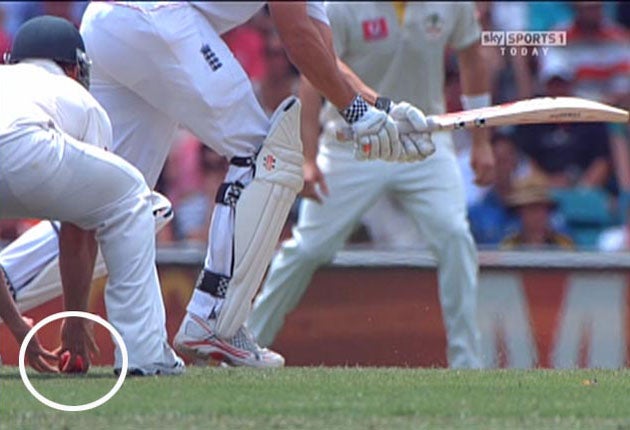James Lawton: Better to have flawed technology than the cynical appeals of old
There is an amnesia that drops over so much of what was disreputable in cricket's recent past

Your support helps us to tell the story
From reproductive rights to climate change to Big Tech, The Independent is on the ground when the story is developing. Whether it's investigating the financials of Elon Musk's pro-Trump PAC or producing our latest documentary, 'The A Word', which shines a light on the American women fighting for reproductive rights, we know how important it is to parse out the facts from the messaging.
At such a critical moment in US history, we need reporters on the ground. Your donation allows us to keep sending journalists to speak to both sides of the story.
The Independent is trusted by Americans across the entire political spectrum. And unlike many other quality news outlets, we choose not to lock Americans out of our reporting and analysis with paywalls. We believe quality journalism should be available to everyone, paid for by those who can afford it.
Your support makes all the difference.You might have thought there could have been nothing more inappropriate and dispiriting at the highest level of sport than the huddle of whiplashed Aussies turning their back on Alastair Cook's exit after his latest epic, record-smashing knock.
Unfortunately, there was, at least for those of us who believe that if technology in cricket is never going to impart infallible justice it is an immeasurable improvement on what we had before.
The new problem was Ian Bell's departure to a chorus of boos from home fans after his maiden, and beautifully created, Ashes century – and the ensuing debate suggesting he had used the Decision Referral System as little more than an aid to cheating.
This was a heavy charge indeed considering that the "hotspot" and visual evidence Bell was able to call upon supported, at least on the naked face of it, his contention that there had been no contact between the bat and the ball gathered triumphantly by Australia wicketkeeper Brad Haddin.
However, the reaction of a jury that included a small army of former Test captains was that there had indeed been a gossamer-light brushing of leather and willow and this meant it was a black day for the case that referrals should become not an extended and luxurious experiment but an underpinning of the game.
Given all that had happened on another day of a Test when England squeezed the Australian pips so hard you could almost hear them squeak, the biggest problem seemed not so much a loss of umpiring credibility but a perspective hindered by the amnesia that drops like a blanket over so much of what was most disreputable in cricket's recent past.
This, those most worried about the loss of face for the excellent umpire Aleem Dar after Bell's survival of his raised finger might care to remember, was the increasingly nauseating spectacle of teams bombarding, en masse, brow-beaten match officials with cheap and cynical appeals.
Nothing was more guaranteed to devastate the image of the game. While it is true that the credibility of umpires, remains hugely important, it seems an illogical leap, at least here, to suggest that somehow Dar had been compromised by Bell's escape.
The umpire's reputation for good judgment, and fine humour under immense pressure, has already been recognised to the extent that he has come to stand like some Mount Rushmore among his peers. A decision so fine was neither going to cause him critical embarrassment – a fact he signalled with a shrug of his shoulders on its revision – nor discredit the system under which it was reached. How could it when you began to measure the benefits of the process bestowed throughout this series and this final Test?
It just happened that on this occasion it worked in England's favour. Dar himself argued the case for the technological overview in the face of Ricky Ponting's ferocious objections when Kevin Pietersen was reprieved in Melbourne.
In Sydney the referral system has twice prevented the heroic Cook losing his wicket unjustly, once when Michael Beer bowled, indisputably, a no-ball, and again when Phil Hughes, sadly, attempted to inflict the shameful myth that he had made a legitimate catch at short leg.
Beer walked past Cook without a flicker of acknowledgement for a brilliant century. It was as though somehow both he and his team had been wronged. The truth was, of course, entirely the opposite. No, technology isn't perfect, but just imagine the mayhem if we didn't have it.
Join our commenting forum
Join thought-provoking conversations, follow other Independent readers and see their replies
Comments